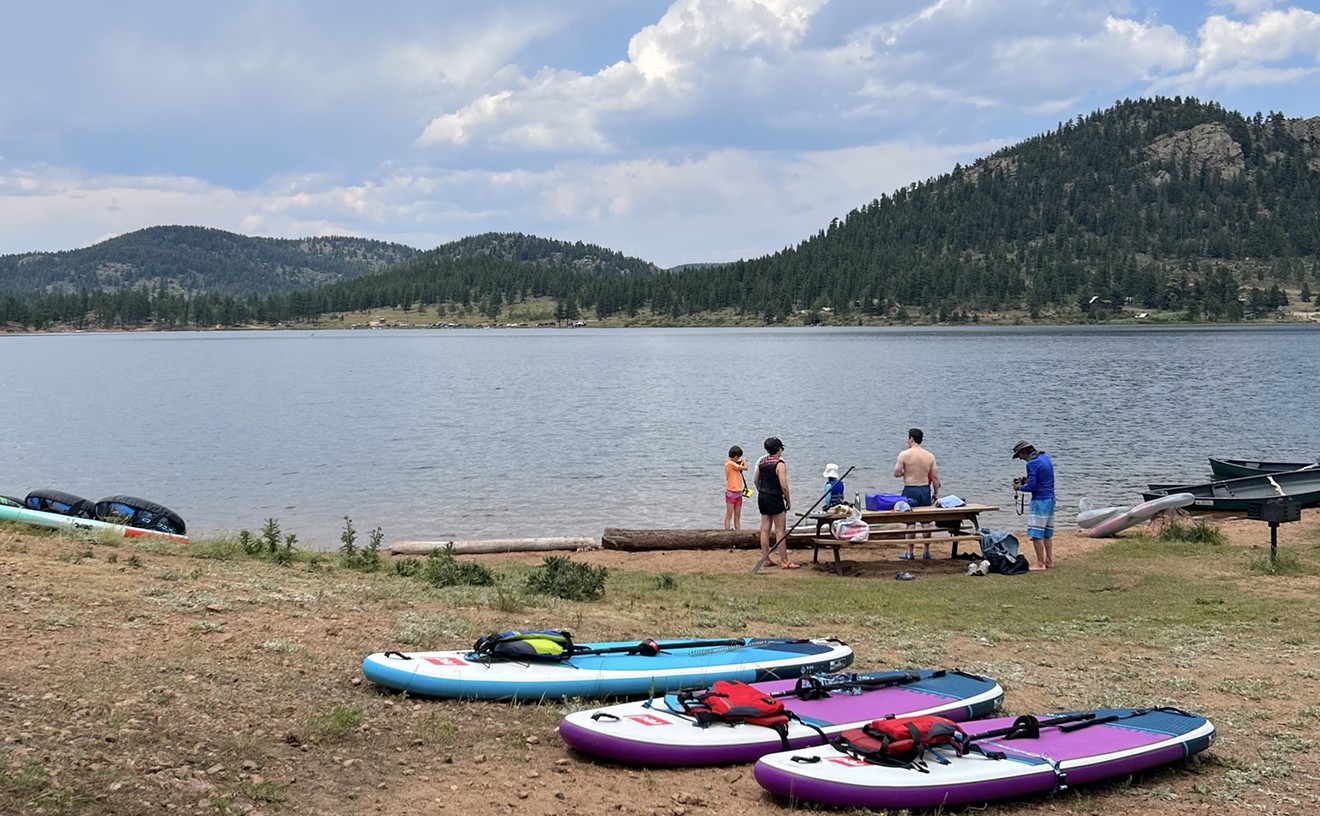Romantic Overgrowth, an interesting and unusual solo at Plus Gallery, showcases work done over the past few years by Melissa Furness, who teaches at the University of Colorado Denver. The show could be seen as a single installation, as Furness orchestrates the same elements throughout: paintings (both her own and found ones), panels of moss and clusters of rubber leaves. Conversely, it could be seen as being made up of a series of related paintings with some moss and other detritus in between. So when I toured the exhibit, I asked Furness how she views it. She says it could be seen either as a singular installation or as individual paintings — or as something in between.
The paintings anchor the show. The compositions are dense with visual elements, including cribbed passages from Romantic-era landscapes and seascapes, historic patterns, ruins and, oddly enough, swimmers. All of these characteristics are seen in the painting "a dark place" (pictured).
Furness's interpretation and handling of these pictorial and narrative elements are sometimes unexpected, and she has imbued them with added meanings. For example, in some instances, the ruins are actually depicted in the paintings, as in "a dark place." But she also sees ruins in the thrift-shop landscape paintings of unsurpassable ugliness that have been hung salon-style on the adjacent wall. It's not that the paintings feature renderings of ruins — they don't, because they are actually landscapes. It's that for Furness, the paintings themselves are ruins because they were once cherished but were then disposed of.
The role of the swimmers is interesting, too. They stand in for alienation — or for being out of one's element, like a fish out of water, Furness says. This notion first came to her some years ago, during a residency in Hungary. "I had never felt like such a foreigner," she recalls, adding that the swimmers need to make repetitive strokes in order to keep their heads above water, just like people repeating the same activities every day to make their way through life. Repetition is also seen in the overlaid patterns and the rubber leaves.
There's a lot to think about in Romantic Overgrowth, but not much time left to do it: The show closes March 1 at Plus Gallery, 2501 Larimer Street. Check out plusgallery.com or call 720-394-8484 for more information.











